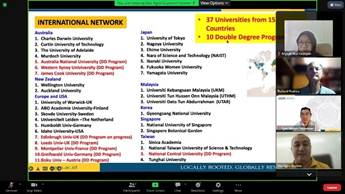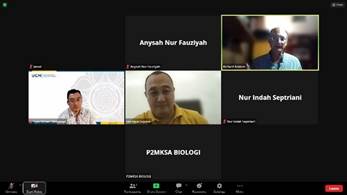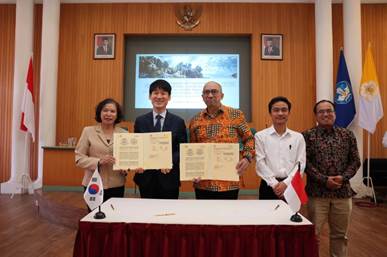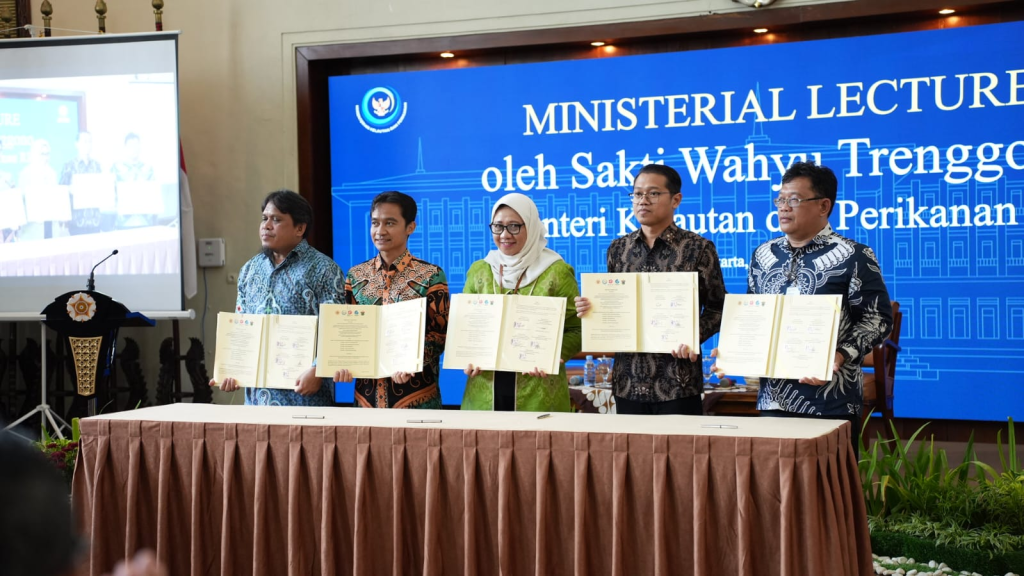UGM collaborates with local and international communities to maintain shared aquatic ecosystems through education, research, and capacity-building initiatives. Collaborative projects include ecological education research with Antioch College, Universiti Malaya, and Ateneo de Manila University to advance sustainable practices in Southeast Asia. UGM also partners with the Korea-Indonesia Marine Technology Cooperation Research Centre to address issues like coastal management, blue carbon, and fisheries science aligned with the SDGs. Additionally, UGM works with Indonesia’s Ministry of Marine Affairs and Fisheries on initiatives such as geospatial ecosystem mapping, marine spatial planning, and seagrass mapping frameworks. These efforts combine expertise from various stakeholders, ensuring sustainable management of aquatic ecosystems while promoting environmental and community resilience.
The Faculty of Biology recently initiated a promising collaboration with Assoc. Prof. Richard Kraince from Antioch College, Ohio, United States focusing on ecological education research in Southeast Asia. The research emphasized cooperative efforts involving local communities to maintain shared aquatic ecosystems. This partnership is envisioned as a significant step toward advancing ecological education and promoting environmental conservation across Southeast Asia.


UGM has partnered with the Marine Technology Cooperation Research Centre (PPKTK) to collaborate on advancing education, research, and innovation in marine and aquatic ecosystems. This partnership emphasizes community engagement in maintaining shared aquatic ecosystems through initiatives like joint research, field surveys, and capacity-building programs.
Key focus areas include blue carbon research, coastal management, and biodiversity mapping, supported by advanced technologies such as remote sensing and geospatial information systems. UGM’s Faculty of Geography and Faculty of Agriculture bring their expertise in marine science, blue carbon stock analysis, and coastal ecosystem planning, ensuring the collaboration addresses critical maritime challenges.

Together with Indonesia’s Ministry of Marine Affairs and Fisheries, UGM has taken on sustainable marine resource management with a strong emphasis on engaging local communities. This exciting collaboration focuses on geospatial information management, legislative advocacy, and a groundbreaking national seagrass mapping framework. The agreement involves UGM’s Faculty of Geography and Faculty of Law, alongside other key institutions like BRIN and BIG.
Two of UGM’s faculties play an active role, showcasing the integration of UGM’s academic expertise with governmental initiatives and local community participation to support the blue economy, balancing ecological sustainability and economic growth. The Faculty of Geography contributes to thematic geospatial management for coastal and conservation areas, while the Faculty of Law enhances capacity-building in policy-making and legal frameworks for marine spatial planning.
By actively involving researchers, students, and local communities, UGM is fostering inclusive research, education, and conservation efforts. Highlighted projects include mapping Indonesia’s blue carbon ecosystems, such as seagrass meadows, which are vital for carbon storage, marine biodiversity, and local livelihoods.

